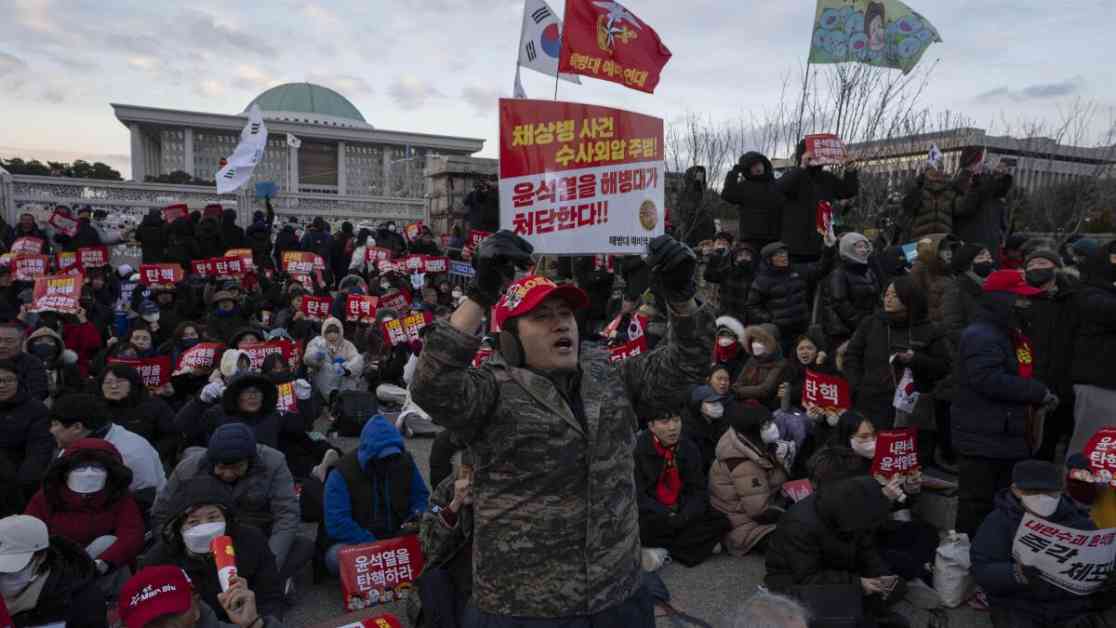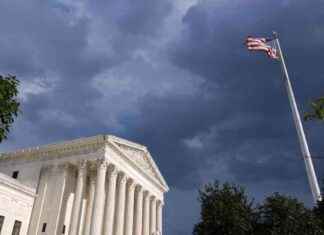South Korean President Yoon Suk-yeol has narrowly escaped impeachment after his party’s lawmakers boycotted a parliamentary vote on his ouster following his declaration of martial law earlier this week. The motion by opposition lawmakers accused him of insurrection, labeling his decree as an unconstitutional self-coup.
Thousands of protesters gathered outside the National Assembly to show their support for Yoon’s removal, with liberal opposition leader Lee Jae-myung vowing to persist until success is achieved. Despite the failed motion, the opposition party plans to submit it again at the next parliamentary session, aiming to oust Yoon and restore normalcy to the country by Christmas.
Impeaching Yoon requires the support of at least two-thirds of the 300-member National Assembly, or 200 votes. The opposition coalition holds 192 seats, leaving the conservative ruling party with the decisive votes. However, only three ruling party legislators attended the impeachment vote, with the majority protesting by leaving the plenary hall.
The atmosphere outside the National Assembly was charged with frustration as citizens from far and wide, including college students, demanded Yoon’s arrest. Yoon’s martial law declaration targeted the opposition-controlled National Assembly, alleging criminal ties and sympathies with North Korea, sparking widespread concern reminiscent of South Korea’s past military dictatorships.
In a surprising turn of events, legislators unanimously overruled Yoon’s decree hours after its announcement, highlighting the divided sentiments within the government. Yoon later apologized to the nation, citing desperation as his motivation for the controversial decision.
Despite accusations of sinister motives and orders to arrest political figures, Yoon denied such allegations and emphasized the need for his party to decide his fate. While conservative members weigh different scenarios to avoid impeachment, the liberal opposition remains steadfast in their pursuit, viewing Yoon as a destabilizing force that must be removed promptly.
The political turmoil in South Korea reflects deeper divisions and historical precedents, with both sides grappling for power and legitimacy. As the country braces for ongoing parliamentary sessions and potential motion resubmissions, the future of President Yoon Suk-yeol hangs in the balance, shaping the course of South Korea’s political landscape.



























